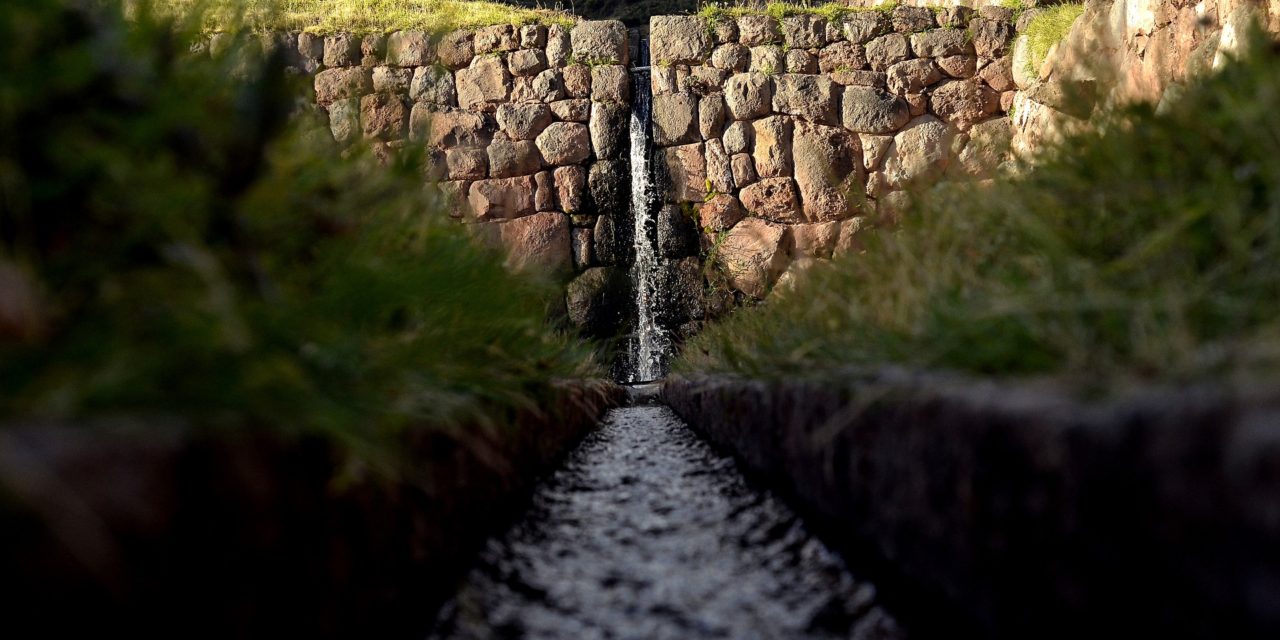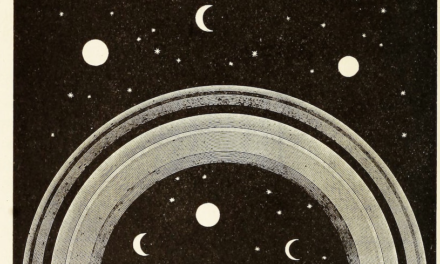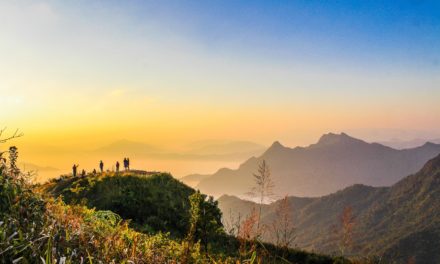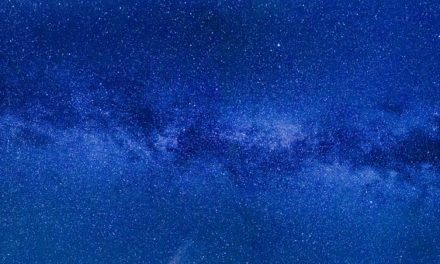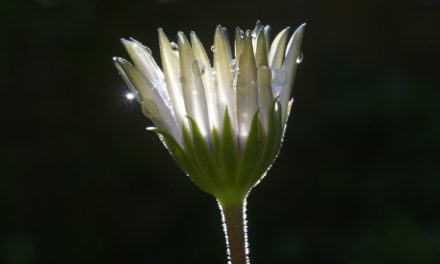I was four months pregnant with my second child, sitting alone in a sea of other people at a women’s business conference, when my entire life changed in an instant.
My objectives that day were simple and clear: I was there to network and win new corporate clients for the employee engagement consulting company I owned. I accomplished neither of those objectives.
Instead, I listened to a beautiful woman named Elizabeth Kapu’uwailani Lindsey speak about a group of Polynesian explorers I’d never heard of before. She called them “wayfinders,” and described how they began training to become navigators as little children. With the guidance of thousands of years of teachings, mostly passed down orally, they could navigate between islands using only their intuition and their ability to interpret the wind, stars, birds, and the ocean itself.
“They found their way by listening and watching,” she said. “So much so that they could sail thousands of miles by simply observing the way the waves broke across the front of the boat.”
As I sat listening to her, something began happening to me. I could feel heat building from my feet all the way up to the top of my head. My breath quickened, my hearing disappeared, and for a moment, everything in the room seemed to shimmer and recede into the background.
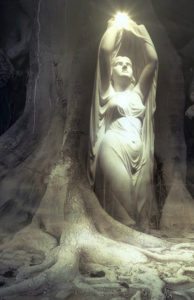 In the midst of it all, I felt my center crack open with a question that, somewhere deep within, I already knew the answer to: What if that kind of intuitive knowledge and ability lived somewhere in me, too?
In the midst of it all, I felt my center crack open with a question that, somewhere deep within, I already knew the answer to: What if that kind of intuitive knowledge and ability lived somewhere in me, too?
“What if?” I seemed to hear the waves whisper as they broke across the front of the wayfinders’ boats. “What if all the knowledge we need comes from the depths of our own hearts?”
For a moment, it was as if I was on the boats with them — watching the waves, feeling the breeze, calmly and steadily navigating my way home.
I left the conference that day with no new clients, but a newfound obsession to learn everything I could about these wayfinders. My search led me to study other teachings of indigenous wisdom, eventually finding my way to South American shamanic traditions. But it wasn’t until my son was born a few months later that I realized who—not what—was seeking me.
The birth of my son was one of the most painful, yet transformative, moments of my life. Once again, I found myself cracked wide open, stunned by the power of my own body and the realization that tremendous pain, joy, and love could all coexist simultaneously and with such magnitude, too. But when I turned back to my wisdom teachings for help in contextualizing what I’d experienced, I found nothing.
That was when it hit me: the story of women’s spiritual experiences simply doesn’t exist in the mainstream.
We are adrift in a culture that is unquestionably male-centric, and nowhere is this clearer than in our spiritual traditions. Here in the West, while we may pretend that God transcends gender, He is still unquestionably male.
In most parts of the world, other deities are predominantly male as well. The esteemed teachers are male. Their disciples are male. And the vast majority of authors write from a male perspective.
When I fully realized the implications of this, I was really angry at the lack of a sacred feminine perspective. As the anger faded, however, I began to feel skeptical, then curious.
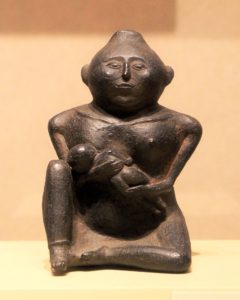 Since the dawn of time, our ancestors have watched life emerge from the bodies of mothers. This is true of other humans, animals, and the Earth herself, as new plants and flowers emerge beautifully and mysteriously from her body every spring. Is it any coincidence that we continue to refer to our planet as Mother Earth, and the elements as Mother Nature?
Since the dawn of time, our ancestors have watched life emerge from the bodies of mothers. This is true of other humans, animals, and the Earth herself, as new plants and flowers emerge beautifully and mysteriously from her body every spring. Is it any coincidence that we continue to refer to our planet as Mother Earth, and the elements as Mother Nature?
For millennia, our ancestors watched life not only be created by mothers, but sustained by them, too. To my knowledge, no prehistoric baby formula has been discovered yet, and it’s estimated that ancient human mothers nursed their children for two to three years to keep them alive. Without their mothers, children die.
Our Earth Mother, too, has sustained us. Her trees and foliage were used to house us. Her plants and animals fed and clothed us. Without her, we all die.
Why wouldn’t our ancestors have imagined our source of life to be a She? And why, then, do most of our predominant religious traditions ignore the obvious truths offered by our own human experience?
These questions electrified me, giving me a sense of purpose I had never experienced before. I began digging for information about female-centric spiritual traditions, and the more I learned, the more fascinated I became.
“Goddess.” “Divine Feminine.” “Unknown She.” Whatever you call Her, it turns out we have a pretty rich human history of honoring the feminine as sacred. You just have to go way, way back in history to find it, slogging through centuries of gender bias in the process.
When I found Her, I learned pretty quickly that She presents a dramatically different face of God than most of us have seen. She is not one-dimensional; rather, She is as multifaceted as we are. She is infinitely compassionate. She is fury personified. She is sexually free. She gives life, and She takes it away. She encompasses all—the darkness and the light. She recognizes all of life as sacred, and all of life as endlessly cyclical—no beginning, no end. And on and on.
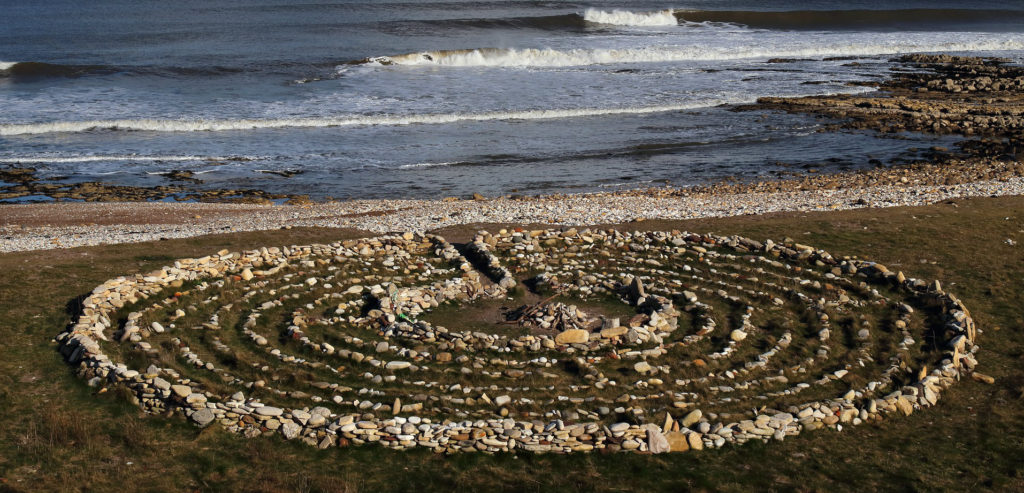
Learning about Her quickly became more than just an intellectual exercise for me. When this sacred feminine force showed up in my life, She meant business. The more I learned about Her, the more I realized that many of my choices, particularly in my career, had been deeply influenced by a need to prove my value and intelligence as a woman in a patriarchal world that was never designed to support me.
Over the course of a year, I upended my life. I walked away from a successful business I’d spent more than seven years building. I dove deeper into my studies of the sacred feminine. I began working with an intuition teacher, and, guided by what I was learning about the sacredness of the body, I became a certified yoga instructor as well as a practitioner of Reiki, a form of energy healing.
None of this was easy. Similar to the birth of my son, the entire journey has been painful and joyful—and completely worth it.
When we lose our ability to envision ourselves as sacred beings, something terrible and soul-crushing happens. The lack of sacred representation we experience, coupled with the subtle messages of inferiority that we receive, seep into our very bones, stealthily convincing us that we are not good enough, strong enough, or powerful enough on our own.
In reality, nothing could be further from the truth. Time and time again, study of feminine wisdom traditions has demonstrated to me that all of life is sacred — each budding flower, each tiny insect, and each human being in all our array of colors, biological differences and sexual orientation. Those who know and fully embrace their own sacred nature are a force to be reckoned with. And when we unleash the full power of the feminine within ourselves, we have the power to transform ourselves and the world around us.
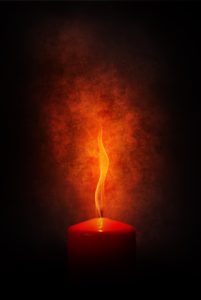 This is the magic and the medicine available to us when we connect with the ancient wisdom of the sacred feminine. As the author Clarissa Pinkola Estes wrote, “In her, people know their lives are sacred. In her, people know they can stand and speak out. In her, they do not grovel, rather they are filled with grace and able to say and do and gather and move and live. Thereby, she is a most dangerous woman force.”
This is the magic and the medicine available to us when we connect with the ancient wisdom of the sacred feminine. As the author Clarissa Pinkola Estes wrote, “In her, people know their lives are sacred. In her, people know they can stand and speak out. In her, they do not grovel, rather they are filled with grace and able to say and do and gather and move and live. Thereby, she is a most dangerous woman force.”
What does it mean, then, to reclaim a relationship with our own, sacred feminine nature? Fortunately, it doesn’t necessitate going back in time, or subscribing to any particular set of rules, rituals, or beliefs like many of the dominant religions of our day require.
Instead, we can start by remembering that collectively, we have ancient, beautiful, feminine roots. We can seek to learn about those roots so that we can connect ourselves to the past that is rightfully ours—our stories, our truths, our own sacred pasts. By reclaiming them for ourselves, we begin to bring our world back into balance, ideally creating better futures for all inhabitants of this planet and those yet to come.
My own experience has taught that this is can be particularly transformative for women. As the author and mythologist Sharon Blackie has so eloquently written, “If women remember that once upon a time we sang with the tongues of seals and flew with the wings of swans, that we forged our own paths through the dark forest while creating a community of its many inhabitants, then we will rise up rooted, like trees. And if we rise up rooted, like trees…well then, women might indeed save not only ourselves, but the world.”

